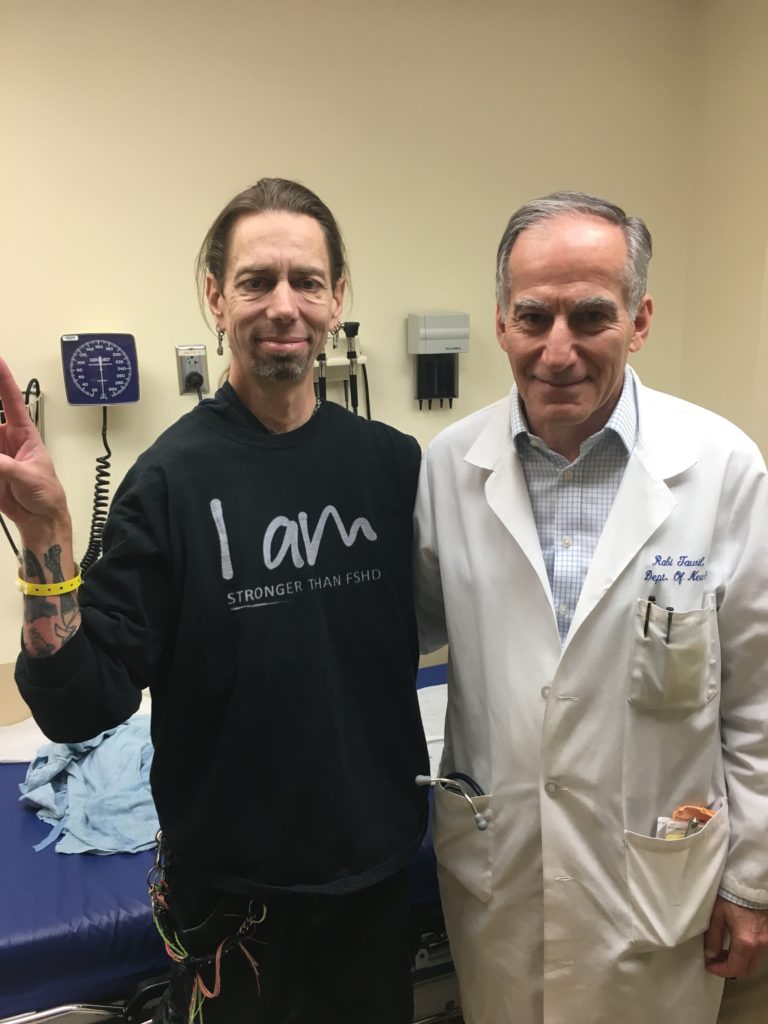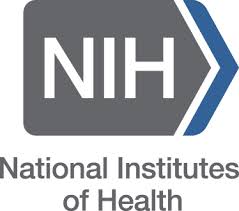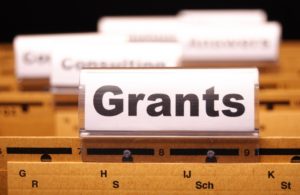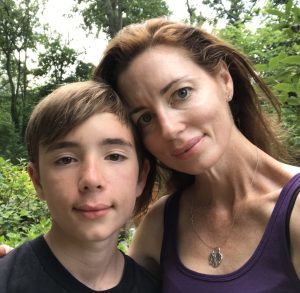
To crack the code of FSHD, patients are absolutely essential
All of the breakthroughs—the discovery of the genetic causes, understanding why some patients vary so greatly in the severity of their symptoms, teasing out the biochemical pathways that could point to future treatments—were made because patients stepped up to the plate.
Too often, we hear patients say they’ll volunteer when there’s a treatment. But we will never get to a treatment unless patients participate in fundamental research now. FSHD is uniquely human, so no laboratory mouse can ever fully model the disease. The genetic “package” that causes FSHD is found only in people. We owe an enormous debt to the patients who give DNA samples. Who submit to long interviews and exhausting physical tests. Allow a surgeon to cut out a small muscle sample. Who fight claustrophobia to lie in the narrow bore of an MRI machine.
Equally important are patients’ family members, both affected and unaffected, who provide the best experimental controls because of their shared genetic and environmental backgrounds. A parent or sibling who has very mild symptoms may hold the key to understanding the factors that protect against the full-blown development of FSHD symptoms in a more severely affected family member.
We are more hopeful today than ever before that a treatment is within sight. We cannot guarantee when that treatment will arrive, but here’s one thing we guarantee: If you volunteer for research, your participation will without question help move us a step closer to that day.
Scientific Overview of FSHD
Read the latest on wikipedia
Glossary of Scientific Terms
Clinical Trial Research Network receives major award from NIH
by June Kinoshita The FSHD Clinical Trial Research Network (CTRN), which was launched last year with a $121,000 grant from the FSH Society, has received a UO1 award from the… Read More »
FSH Society awards over a half million dollars for new research
The FSH Society, a world leader in combating facioscapulohumeral muscular dystrophy (FSHD), announced this spring that it has committed $550,792 in funding to six research projects that aim to break… Read More »
FSH Society Talk Radio with Dr. Charis Himeda
UPDATE: Our show has been rescheduled for Wednesday, August 30, 2017, 9:00 pm EST / 8:00 CST. Visit us here for updates. Listen live or via podcast HERE! Our guest is Charis… Read More »
Why I donated tissue
by MAUREEN EYE Centerport, New York In November of 2016, I underwent scapula fusion surgery in Baltimore, Maryland. During that surgery I had the privilege to donate muscle tissue for FSHD… Read More »






